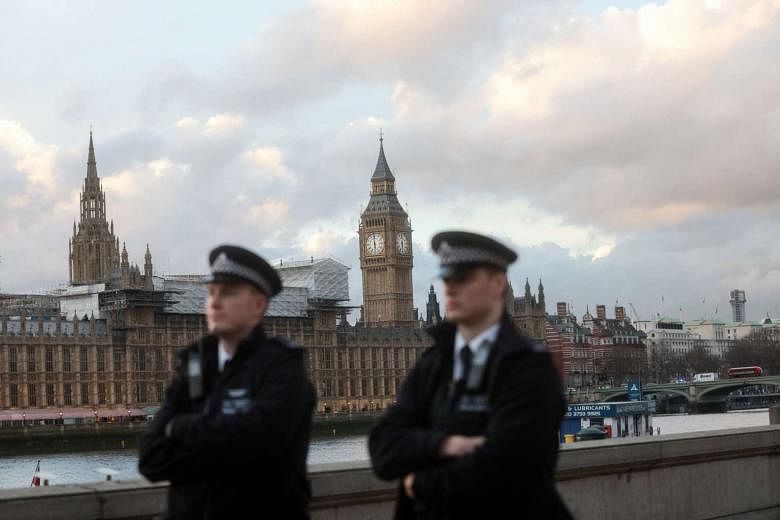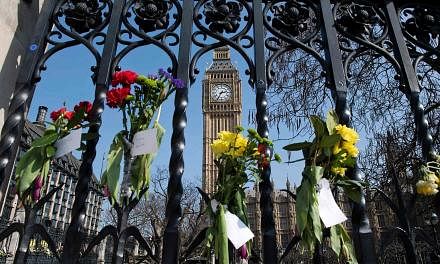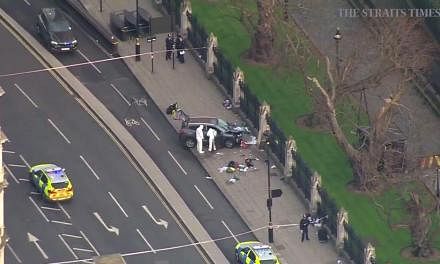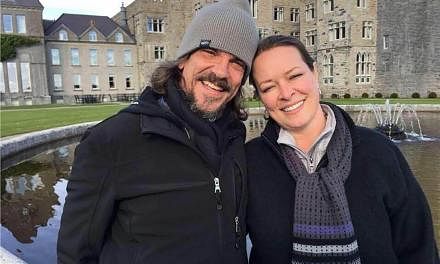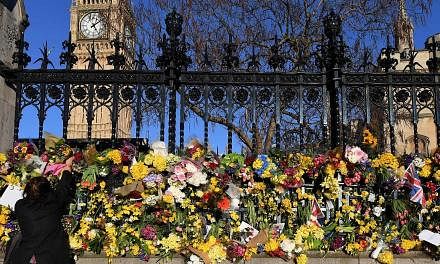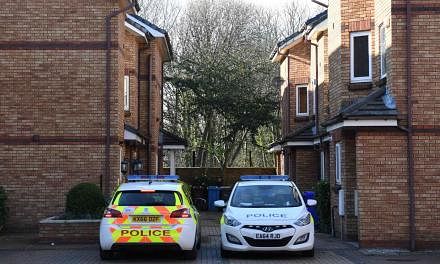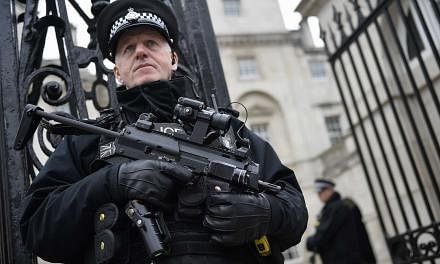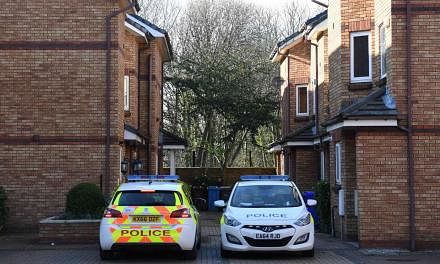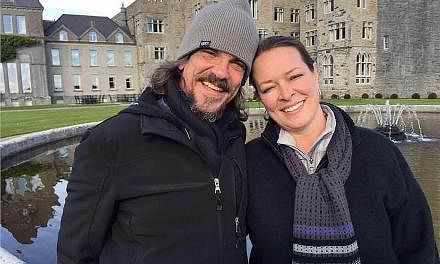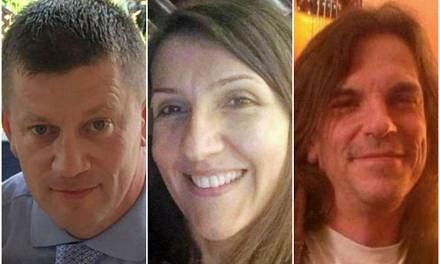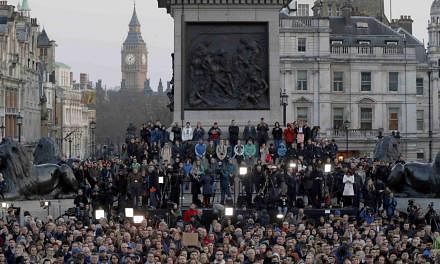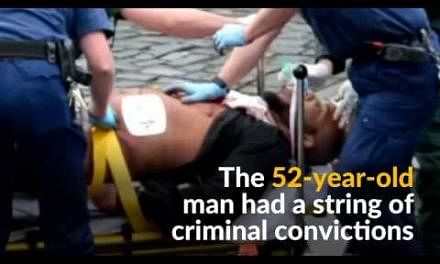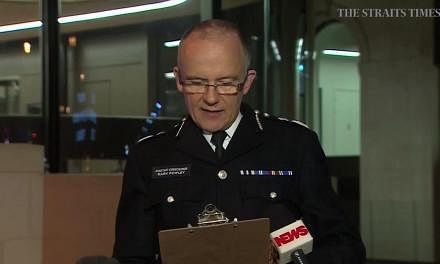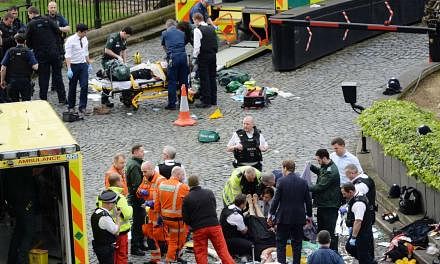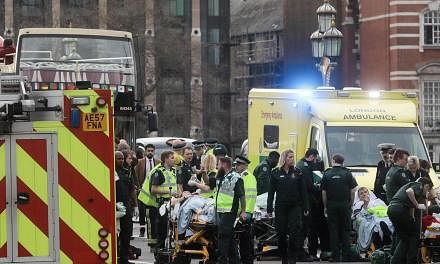LONDON - British Prime Minister Theresa May has ordered her country's security services to remain on high alert after a single terrorist tried to storm the building of the British parliament in the centre of London on Wednesday night (March 22), stabbing a police officer to death and killing two other people as his car plunged into the nearby crowds.
But Mrs May, who chaired a meeting of her government's emergency committee - dubbed Cobra - soon after the attack, struck a defiant note, saying nothing will deter Britons from getting on with their daily lives.
As the sun rises on Thursday in the British capital, she vowed that "parliament will meet as normal; we will come together as normal".
Huge police cordons continue to block regular access to the parliamentary buildings from both sides of the Thames River and police helicopters hovered throughout the night above the area, pointing their search lights at various points along Westminster Bridge, the epicentre of the carnage.
Separate police units also patrolled the approaches to St Thomas' Hospital just across the river from parliament, where many of the estimated 40 people injured are receiving treatment. Some are described as having sustained "catastrophic injuries".
And throughout the night, members of the press and of the public outside the hospital gates burst into spontaneous applause as the various shifts of doctors and nurses reported to duty.
Investigators are still refusing to name the perpetrator of the attacks, who was shot dead on site by the police. But Mrs May confirmed that the attacker was acting alone, and in a separate overnight briefing to journalists, Police Assistant Commissioner Mark Rowley, head of counter-terrorism operations in the British capital, confirmed that the attacker's identity is known to the authorities.
In private, security officials are reassured that the initial response to the assault worked as intended. The assailant failed to ram his car past the steel railings of parliament, the structure protecting one of the most sensitive British targets appears to have endured the attack.
And although the attacker did stab a police officer and did succeed in running past the first police cordon at the main entry to parliament, he was shot by plainclothes policemen well before he managed to enter the parliamentary building, and some distance away from a number of Members of Parliament, precisely as counter-terrorism procedures envisaged.
Better still, first ambulances arrived at the scene to tend to the victims in three minutes, well within the eight-minute target response time for such emergencies.
And the fact that this appears to have been a "lone-wolf" attack is reassuring for Britain's intelligence services, who foiled no fewer than 13 terrorist plots over the past year, but who cannot be expected to identify every single potential murderer.
Still, the attack confirms two fears shared by the security services for some time: that lone terrorists continue to be attracted to iconic targets, and that they no longer need machine guns or explosives, since they can wreak havoc by simply mowing people down with a car, or by stabbing with kitchen knives.
The attack also raises more specific questions about the physical defences around Whitehall, the seat of the British government, where parliament and most government departments are sited.
The area is protected with a variety of physical defences, but its pavements, used by literally hundreds of thousands of locals and tourists daily, are largely exposed. And special vulnerabilities exist around the Big Ben clock tower and the entrance of MPs to parliament, precisely where Wednesday's attack took place.
A massive intelligence investigation into the lessons to be drawn from the tragedy is already underway.
"This is a day that we had planned for - that we all hoped would never happen - but sadly it is now a reality," said Police Assistant Commissioner Rowley.
